
Mexico has become a popular destination for couples seeking in vitro fertilization (IVF) treatment. With its state-of-the-art clinics, experienced medical professionals, and competitive pricing, Mexico offers a compelling option for those pursuing fertility solutions.
Understanding IVF and Gender Selection
IVF is a form of assisted reproductive technology where an egg is fertilized by sperm outside the body. Gender selection, also known as sex selection, in IVF, involves choosing the sex of a baby before pregnancy. This is typically done for medical reasons (to avoid sex-linked diseases) or for family balancing.
Cost of IVF Treatments in Mexico
The cost of IVF treatments in Mexico ranges from $4,800 to $10,700. This cost may vary depending on several factors, including the clinic's location, reputation, facilities, and the specific services included in the treatment package.
Cost of IVF Treatments in Mexico |
|
|
Location |
Cost in USD |
|
Mexico |
$4,800 - $10,700 |
|
United States |
$15,000 |
|
Canada |
$13,000 |
Choosing the Right IVF Clinic
Selecting the right IVF clinic is paramount to the success of your fertility journey. Here's a step-by-step guide to help you make an informed decision:
- Research Multiple Clinics: Begin by researching multiple IVF clinics in Mexico. Explore their credentials, success rates, and patient testimonials to gauge their reputation and track record.
- Consultation: Schedule consultations with prospective clinics to get a firsthand look at their facilities, meet the medical team, and discuss your treatment options. Use this opportunity to ask questions about their treatment protocols, success rates, and any concerns you may have.
- Accreditation: Ensure that the IVF clinic you choose is accredited by reputable organizations such as the Joint Commission International (JCI) or the International Organization for Standardization (ISO). Accreditation is a testament to the clinic's commitment to maintaining high standards of patient care and safety.
Top 5 Reputed Clinics in Mexico for IVF
Here are the 5 Reliable IVF Clinics in Mexico:
|
Clinics |
|
2. UNILIVE |
IVF in Mexico Real Reviews and Success Cases
Evaluating success rates and reading patient reviews can provide valuable insights into the quality of care provided by different IVF clinics. Here's what to consider:
- Success Rates: Look for IVF clinics with consistently high success rates, particularly in your age group and with your specific fertility diagnosis. While past success rates are not a guarantee of future outcomes, they can be indicative of a clinic's expertise and proficiency in achieving positive results.
- Patient Reviews: Take the time to read reviews and testimonials from former patients who have undergone IVF treatment at the clinics you are considering. Pay attention to their experiences with the medical team, the quality of care received, and their overall satisfaction with the treatment process.
IVF in Mexico Real Reviews:
1. Laura's IVF Success Story at INGENES Institute, Mexico
Laura's journey from infertility to motherhood is a testament to resilience and hope. Despite countless challenges, she found strength in her husband's support and INGENES clinic's care. Her twin boys were a miracle after IVF, followed by two more unexpected blessings. Laura's story inspires hope, reminding us of the transformative power of perseverance and the joy that comes from overcoming life's greatest obstacles.
2. Elda's Brave Journey to Parenthood Through IVF in Mexico
Elda, a landscape engineer from the USA, embarked on an emotional IVF journey at 38. Despite challenges, she found hope at INGENES Institute in Mexico. Through setbacks, support, and perseverance, Elda and her husband welcomed their daughter, a testament to the power of resilience and shared dreams. Her story inspires hope, showing that with faith and support, parenthood is possible. Join us at INGENES to support your journey to parenthood.
3. Esther's IVF Success Story in Cancun
In Cancun's vibrant backdrop, Esther's journey to motherhood unfolded at the Advanced Fertility Center. Longing for a child, she faced the challenges of age-related fertility decline. IVF became her beacon of hope, leading her to Dr. Alfonso Suárez's care. Amidst complex emotions, Esther found solace in meticulous preparation and the center's support.
Each step of IVF, from retrieval to transfer, was marked by anticipation and expert care. Three months of cautious optimism culminated in the joy of holding her baby girl—a testament to perseverance. Esther's story echoes hope, advocating for those on similar paths, transcending age and fear. Her journey stands as a testament to determination, offering insight and inspiration to all aspiring parents.
4. A Couple's Success at Advanced Fertility Center Mexico
In the vibrant city of Cancun, one couple's journey to parenthood unfolds at the Advanced Fertility Center. Despite infertility struggles, they find hope and resilience, embarking on fertility treatment with Dr. Espadas. Their journey, filled with challenges and triumphs, culminates in the joy of new life—a testament to the possibilities at the center. Their story inspires others, offering hope and guidance to those on similar paths.
5. Sharon Tate's Tubal Ligation Reversal in Mexicali
In a suburban haven, Sharon Tate dreamed of motherhood, but tubal ligation halted her path. Despite celebrations and travels, an unshakable void persisted. The cost of reversal in the US seemed insurmountable, fueling her search for alternatives. Driven by determination and hope, she opted for Mexico's affordable care, finding solace at Hospital De La Familia in Mexicali.
Meticulous planning paved her journey to renewal, where Dr. Ross's expertise reassured her. Post-op, Sharon's resilience and top-notch care accelerated her healing. The discovery of pregnancy brought overwhelming joy, motivating her to share her journey, aiming to inspire and guide others through their own paths to parenthood.
Sharon's story serves as a beacon of hope, reminding us of the transformative power of perseverance and the blessings of medical tourism.
6. Danay's Triumph: A Personal IVF Journey to Motherhood
Danay's pilgrimage to IREGA IVF in Acapulco is a testament to the human spirit's quest for creation. Despite silent yearnings and the labyrinth of infertility, she sought fulfillment beyond borders. Drawn by tales of success, Danay entrusted her dream to IREGA's care.
Amidst clinical precision, her journey unfolded—a delicate dance of science and hope. Post-treatment, she found solace in the warmth of the staff's support. Returning home, Danay carried a heart brimming with gratitude, becoming a beacon of possibility for others. Her story inspires and illuminates the path to parenthood, reminding us of the enduring spirit's resilience.
7. Kristy 5 Star Review
"In 2018 I had timed ovulation and IUI in the States and I am still waiting on them to call and check on me. I tried IVF in Barbados and was unsuccessful. The clinic was great but the program seemed standard. FCA in Cancun was amazing. They communicated well and timely. They created a program just for me and checked my levels frequently. My results were much better than my previous IVF cycle under their program. They even checked on me between visits. To top it off they were more affordable than all the other places. I would highly recommend them."
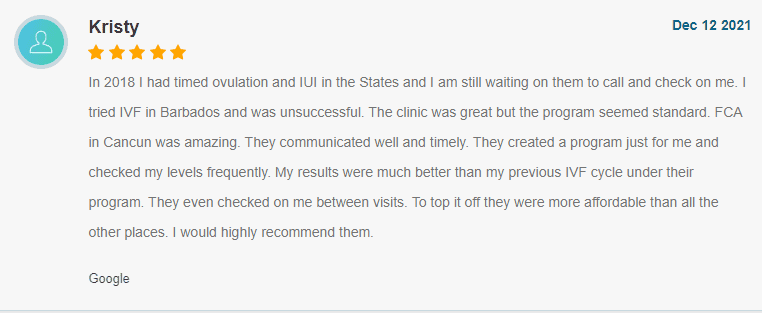
8. Evelyn Review
"Comparto mi experiencia con la clinica, desde el principio llevando mi tratamiento con el Dr.FLores fue y es super Profesional, paciente y preocupado por que sigamos todas las indicaciones al detalle.
El staff administrativo muy servicial y atento.
Estamos felices con mi esposo de haber elegido la Clinica .
100 % recomendada.
Gracias por todo Dr FLores.."
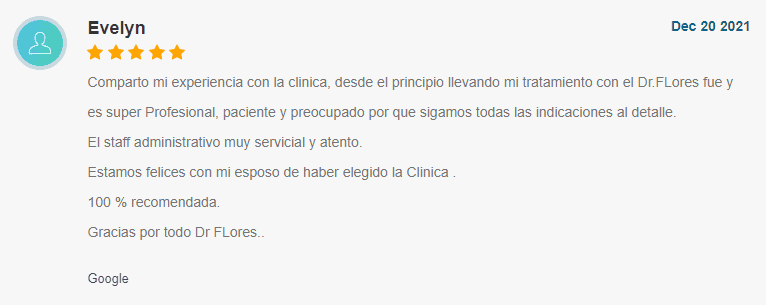
The Process of Gender Selection in Mexico
In Mexico, the process of gender selection through IVF involves several steps:
- Initial Consultation: Couples undergo a thorough consultation with fertility specialists to understand the process, risks, and success rates.
- Ovarian Stimulation: The woman receives hormonal treatment to stimulate the ovaries to produce multiple eggs.
- Egg Retrieval and Fertilization: Eggs are retrieved and fertilized with sperm in a lab.
- Preimplantation Genetic Testing (PGT): The embryos are tested for genetic conditions and their sex.
- Embryo Transfer: One or more embryos of the desired sex are transferred to the woman's uterus.
Ethical Considerations
The ethical landscape of gender selection in Mexico through IVF is complex:
- Medical vs. Non-Medical Reasons: Selecting gender to prevent hereditary diseases is generally more accepted than choosing for personal or cultural preferences.
- Gender Imbalance: There are concerns that preference for one gender could lead to societal imbalances.
- Accessibility and Equality: IVF and gender selection are expensive, raising questions about accessibility and socio-economic disparities.
- Cultural and Religious Perspectives: Varied cultural and religious beliefs globally influence the ethical stance on gender selection.
Legal Framework in Mexico for IVF
Mexico's legal stance on IVF and gender selection is relatively permissive compared to many other countries. There are no specific laws prohibiting gender selection for non-medical reasons, making it a destination for those seeking these services.
The Role of Medical Professionals
Medical professionals in Mexico adhere to ethical guidelines, ensuring informed consent and counseling for couples. They play a crucial role in educating and guiding patients through the moral and social implications.
Psychological Aspects
Choosing a child's gender can have psychological implications for the parents and the child. It's crucial for parents to understand and prepare for the potential emotional and psychological impact.
Success Rates and Risks of IVF Gender Selection in Mexico
When considering IVF gender selection in Mexico, it is crucial to understand both the success rates and the associated risks. This knowledge helps in making an informed decision.
Success Rates
- IVF Success: The success rate of IVF treatments in Mexico varies, typically depending on factors like age, fertility issues, and clinic standards. On average, success rates can range from 30% to 60%.
- Accuracy of Gender Selection: The accuracy of gender selection using Preimplantation Genetic Testing (PGT) is remarkably high, often cited as being over 95%. This means that if the IVF procedure is successful, the probability of having a child of the desired gender is very high.
- Influencing Factors: Factors influencing success include the quality of the sperm and egg, the health of the embryos, and the mother's age. Younger women generally have higher success rates due to better egg quality.
Risks
- Medical Risks: IVF procedures carry risks such as ovarian hyperstimulation syndrome, egg retrieval complications, and the risk of multiple pregnancies (twins or more), which can lead to higher rates of premature birth and pregnancy complications.
- Emotional and Psychological Impact: The IVF process can be emotionally taxing. Unsuccessful attempts or complications can have significant psychological impacts on the individuals or couples involved.
- Ethical and Social Considerations: There are broader ethical and social risks, including the reinforcement of gender biases and the potential for future societal imbalances.
- Financial Risks: IVF treatments, especially those involving additional procedures like PGT for gender selection, can be expensive. The financial burden can increase with multiple cycles.
Alternatives to Gender Selection
Couples considering gender selection should also be aware of alternatives, such as adoption or accepting the natural probability of gender.
Get IVF in Mexico Today
Gender selection through IVF in Mexico presents a tapestry of scientific advancement, ethical considerations, and legal frameworks. It's a decision that encompasses not just a desire for a specific gender but also deep ethical, psychological, and societal dimensions. As technology advances and global perspectives evolve, the conversation around gender selection in IVF continues to be an important one.



.png)


-Package-at-Advanced-Fertility-Center-Cancun,-Cancun,-Mexico.png)


.png)
-Treatments-Why-More-Couples-Are-Going-Abroad-Thumbnail.png)
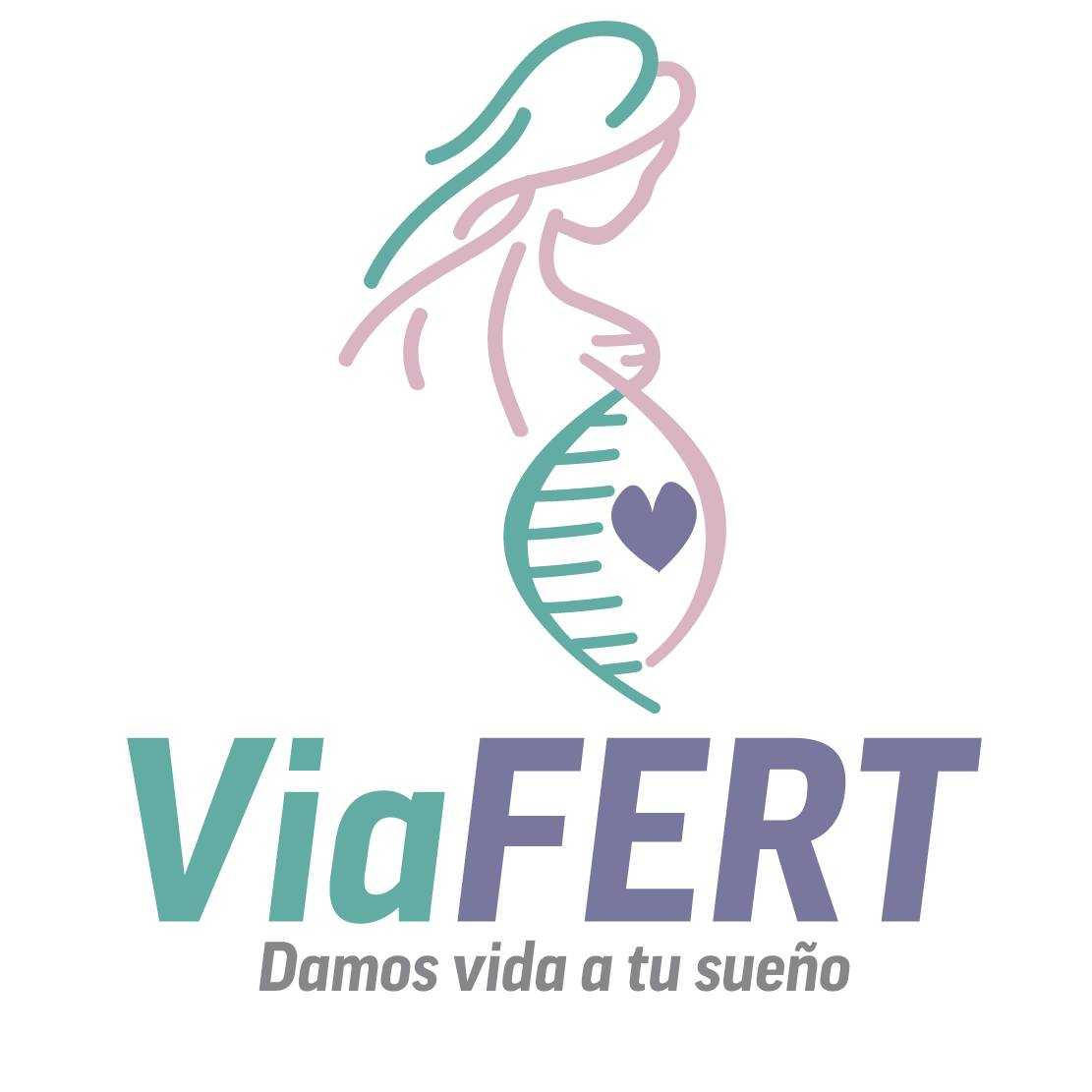
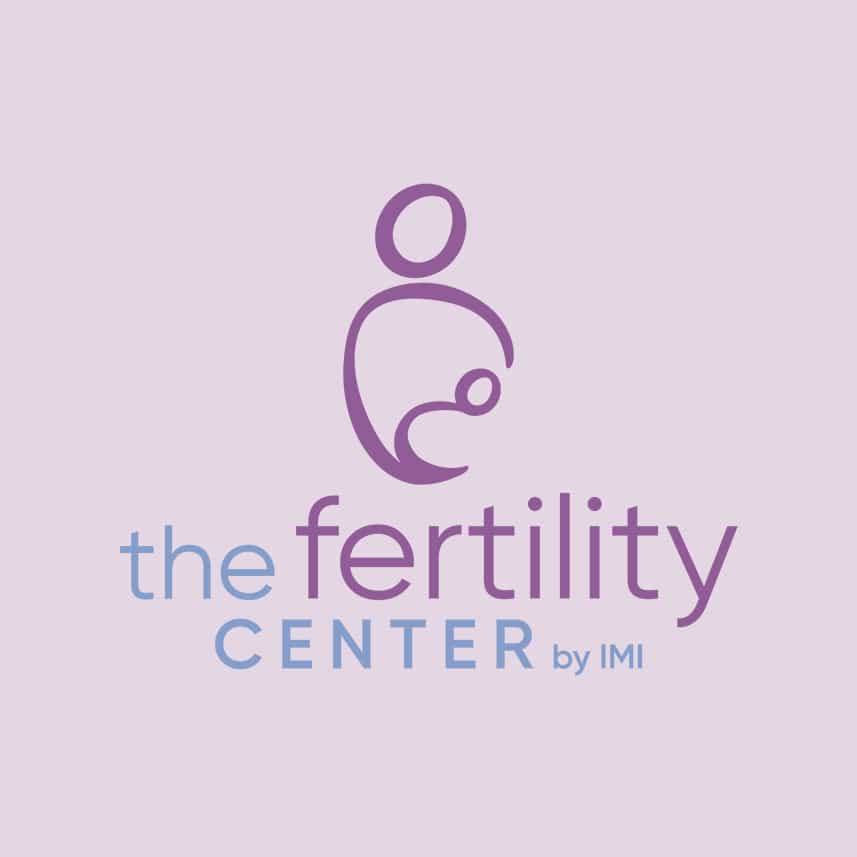
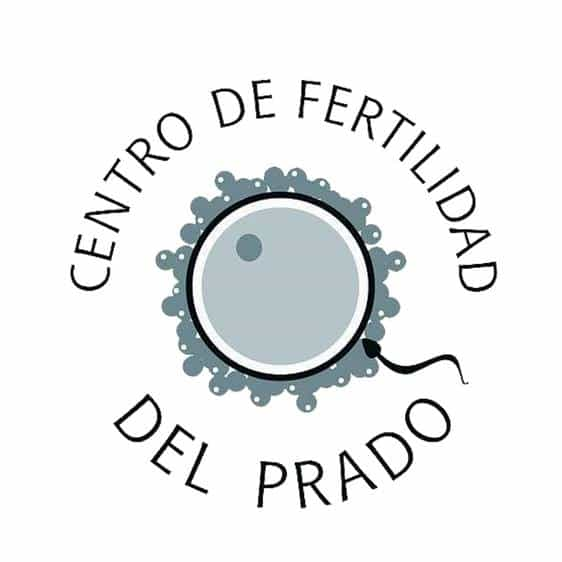

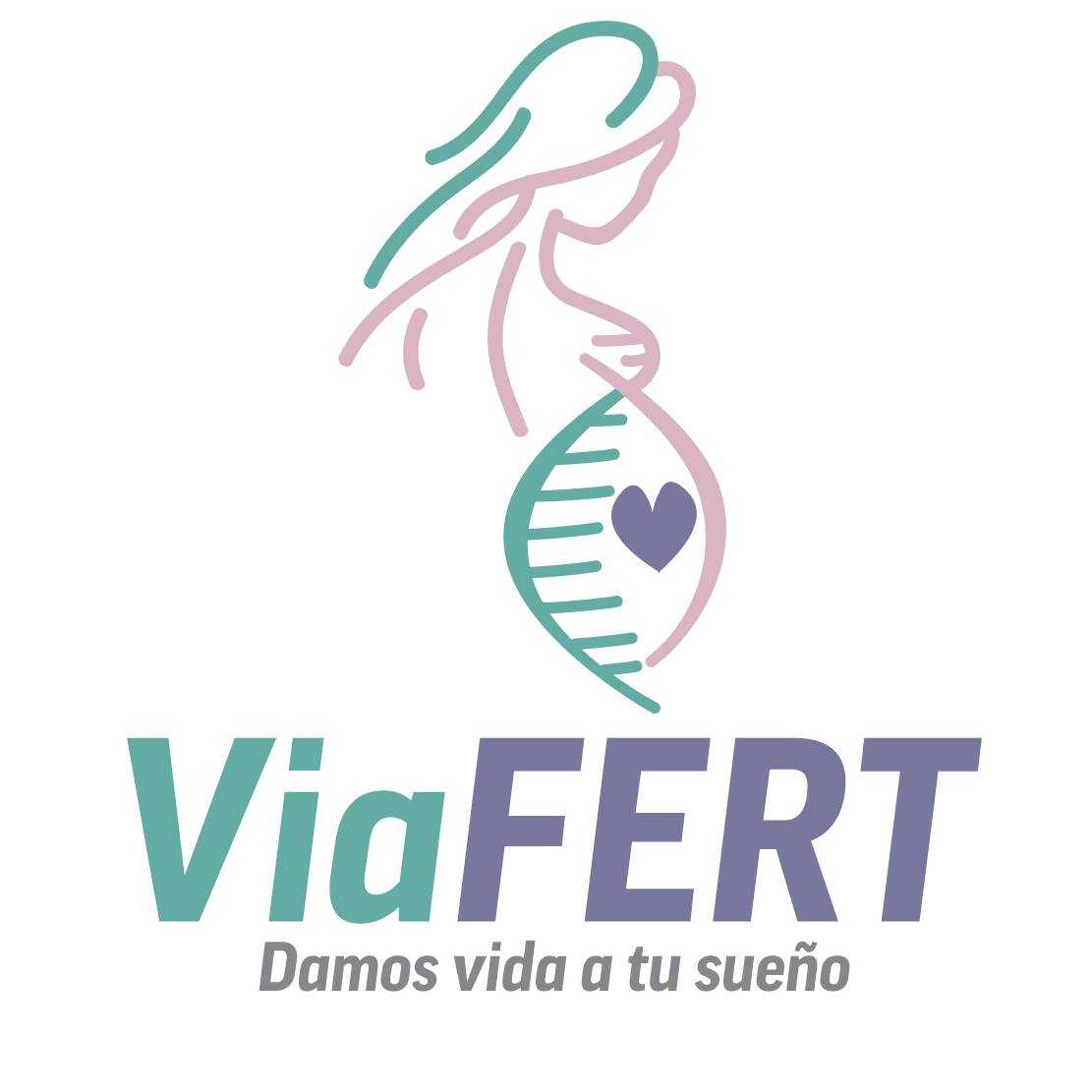

Share this listing